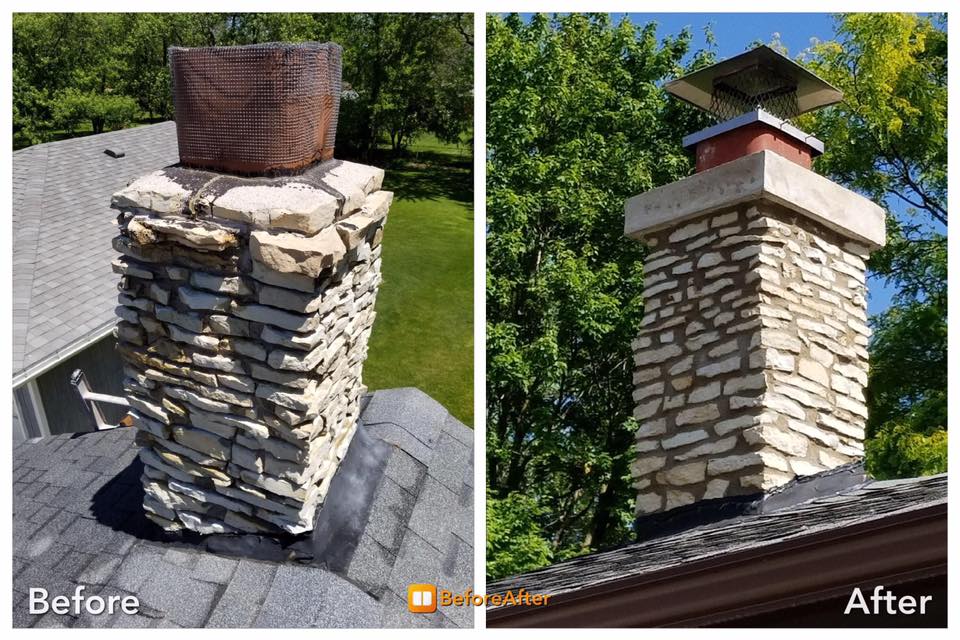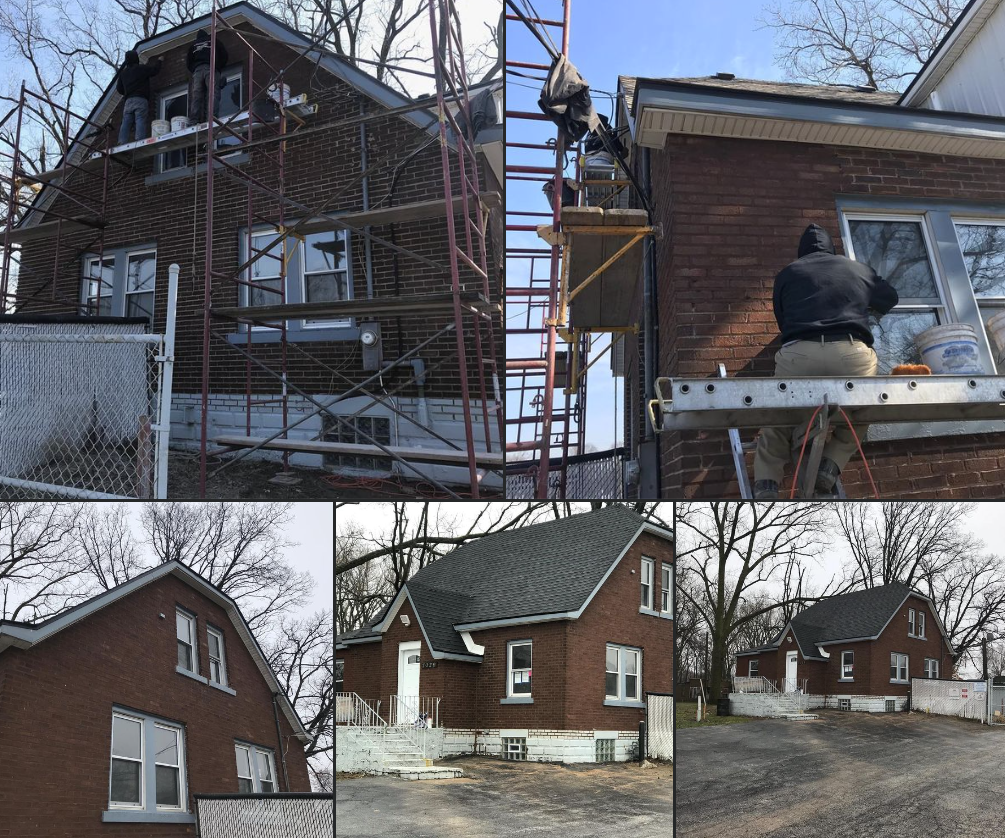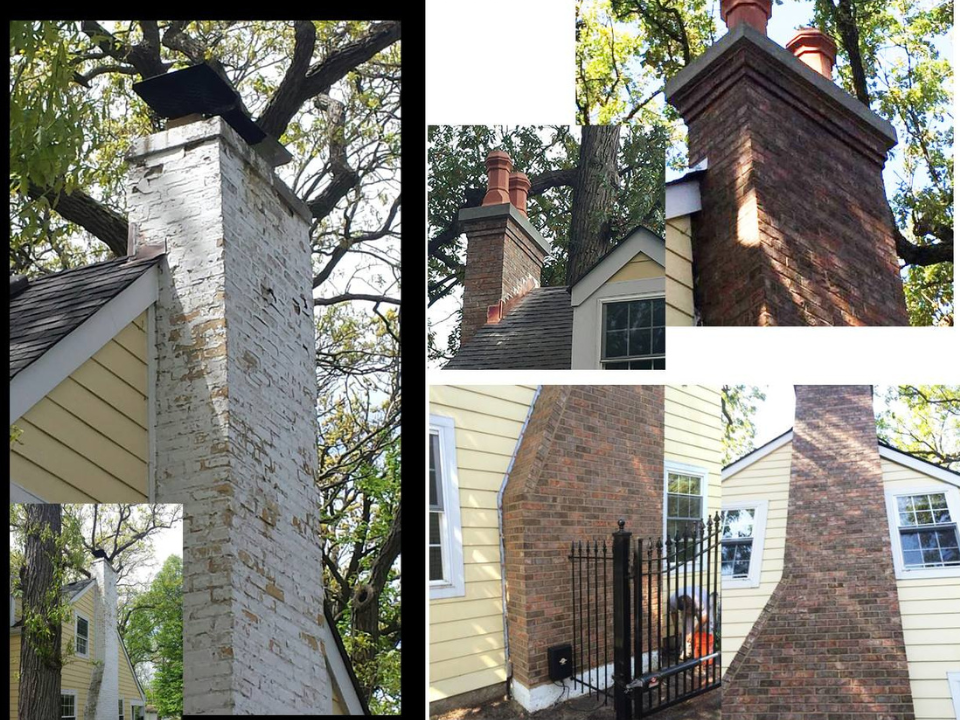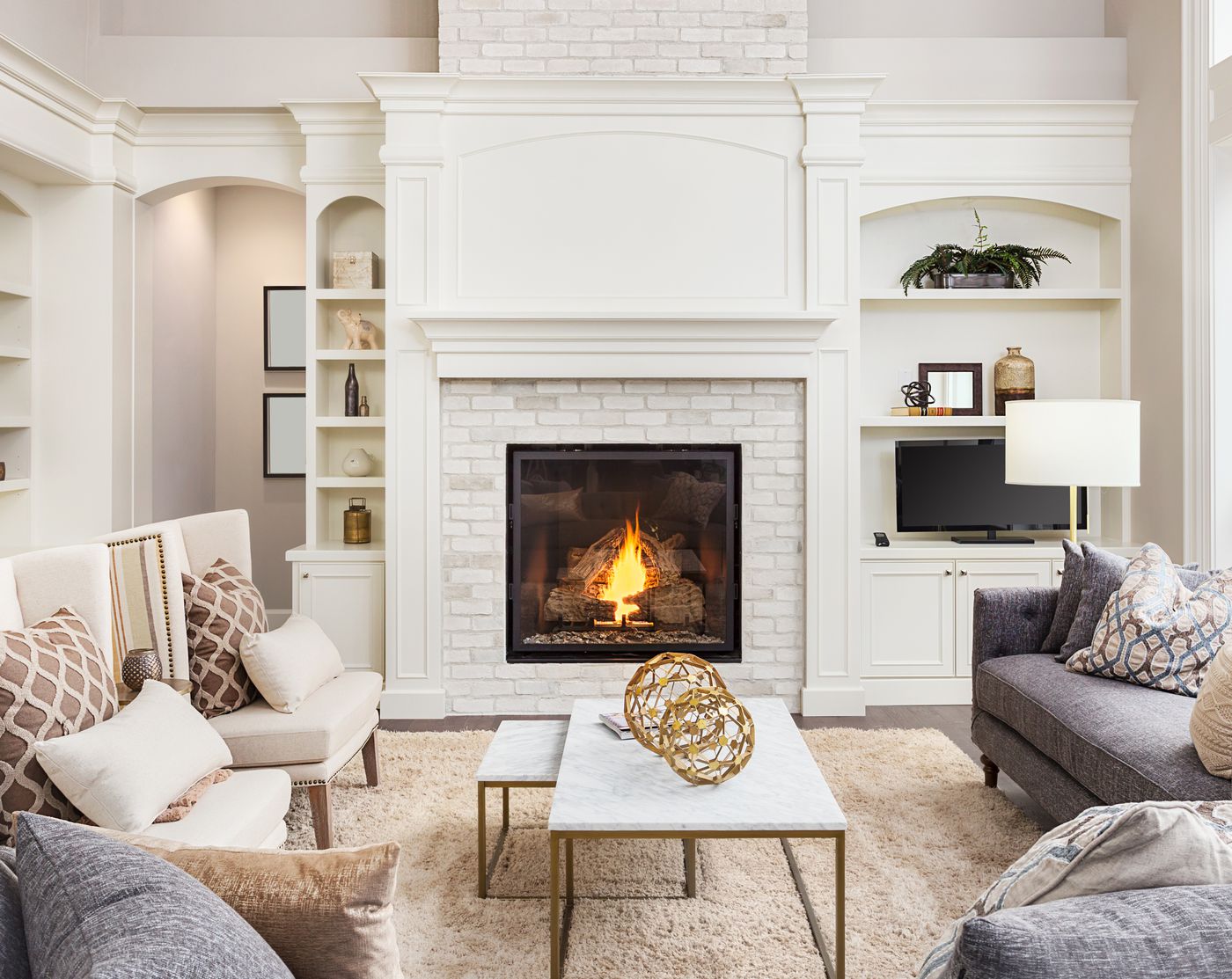Evening CampFire Gas Logs
Bring the warmth and nostalgia of a campfire indoors with Evening CampFire Gas Logs from Chicagoland Fireplace & Chimney Restoration. Realistic detailing, vibrant flames, and efficient heat for year-round comfort.
Fireplace season in Chicagoland is more than a switch from mild fall days to cold winter nights — it’s a transition that puts your chimney, masonry, and ventilation systems to work in a way they haven’t been since the previous heating season. Winter brings freezing temperatures, moisture exposure, and increased fireplace usage. Without proper preparation, homeowners may face issues such as draft problems, smoke buildup, lingering odors, damaged masonry, or costly repairs that could have been prevented.
Getting ahead of winter fireplace readiness isn’t just proactive — it’s an essential part of keeping your home safe, minimizing fire hazards, and protecting your investment. From preventative maintenance and sweeping to waterproofing and component checks, winterization plays a major role in long-term performance.
This guide walks through the exact steps Chicagoland homeowners should take before lighting that first winter fire.
One of the most important steps in fireplace winterization is ensuring the flue system and firebox are clean and functioning properly. Creosote buildup is one of the leading causes of preventable chimney fires, and regular maintenance goes far beyond aesthetics — it protects both the home and the people inside it.
A seasonal maintenance approach begins with a professional inspection. Many homeowners learn more about what’s happening behind the walls during an inspection than during any other service. A detailed review of the firebox, masonry, and venting helps identify early damage patterns and safety concerns. For a deeper look into why inspections matter, the article on the importance of chimney inspection covers key benefits and warning signs.
After inspection, sweeping is often the next recommended step, especially if the fireplace was heavily used the previous year. A full sweep clears soot, ash, nesting debris, and hardened creosote deposits. Homeowners who want a more thorough breakdown of this process may reference the guide on comprehensive chimney sweeping in Chicagoland to understand why maintenance intervals affect efficiency, insurance protection, and safety.
A strong draft helps smoke exit the chimney rather than lingering inside the home. If a draft is weak or working inconsistently, several potential causes may be at play:
Chicagoland winters bring weather patterns that can amplify draft problems. Moisture from freeze-thaw cycles or animal nesting during off-season months can restrict airflow. Homeowners unfamiliar with normal fireplace function may notice smoky fires, odors, or difficulty getting flames started — all signs worth addressing before winter use.
Understanding fireplace structure and components helps diagnose these issues, and the resource on what you need to know about your fireplace gives homeowners useful context.
Two components are especially important for winter performance: the cap and the damper.
A cap prevents animals, moisture, and debris from entering the system. Without it, rain and snow can move into the flue, accelerating deterioration and creating potential blockages. For homeowners unsure whether theirs is functioning or installed correctly, the resource on chimney cap replacement or installation explains how to identify failure symptoms.
The damper controls airflow and helps maintain heat efficiency. It must open properly before use and close securely when the fireplace is not active. In older homes, dampers may fail without obvious symptoms, leading to heat loss or smoky fires. Winter weather highlights weaknesses fast — which is why damper checks belong in every winterization routine.
Moisture infiltration creates some of the most expensive and difficult chimney problems. Winter freeze-thaw cycles can worsen cracks, deteriorate mortar joints, and weaken the entire structure. Preventing this type of damage is much easier — and far more cost-effective — than repairing it.
The resource on waterproofing your chimney explains how protective sealants and proper structural condition help prevent ice expansion and long-term deterioration.
Masonry restoration may be necessary if previous winters already caused damage. Weakened joints and deteriorating surfaces aren’t just cosmetic — they influence airflow, heat control, structural safety, and system longevity. Homeowners facing these issues can reference the article on chimney masonry repairs after water damage for insight into repair scope and timing.
Fireplaces and chimneys face stress from temperature changes, moisture, and constant heat exposure. Over time, cracks or deterioration may spread — especially if the structure hasn’t been serviced regularly. Understanding early warning signs can help avoid major restoration in the future.
The blog post on the deterioration dilemma of fireplace bricks discusses risk factors and repair considerations. For mortar-specific concerns, the guide to tuckpointing indoor and outdoor fireplaces explains how damaged joints affect airflow and stability.
Older homes often require more comprehensive care. The reference on brick fireplace restoration in aging properties outlines when restoration makes sense and how it preserves the long-term value of the home.
Beyond cleaning and structural protection, winterization must include safety checks. These are essential for fire prevention and indoor air quality.
Key safety checks include:
Homeowners should also evaluate vent systems based on fireplace type. For those uncertain which model they have or what system applies, types of fireplaces provides clarity.
Once winter routines are established, it becomes easier to maintain the fireplace over time. Some homeowners choose offseason cleaning in spring to avoid the seasonal surge. For those considering shifting maintenance to warmer months, the resource on spring and summer chimney cleaning outlines why early action prevents future issues.
Routine maintenance is always preferable to emergency repair — and may prevent fire-safety risks. No winter readiness plan is complete without revisiting why cleaning and regular tune-ups matter. The article on why regular chimney cleaning matters reinforces the safety benefits and long-term necessity of scheduled care.
Winter fireplace preparation is a seasonal habit worth maintaining — especially in Chicagoland, where weather patterns and freeze-thaw cycles can accelerate deterioration and compound risks for homeowners who skip preventative care.
Winterization supports efficiency, comfort, safety, and long-term system health. A fireplace performs best when it’s cleaned, structurally protected, and ready for cold-weather use. Whether updates are minimal or require larger repairs, the steps taken today prevent disruption and avoid emergency expenses during the coldest time of year.

Bring the warmth and nostalgia of a campfire indoors with Evening CampFire Gas Logs from Chicagoland Fireplace & Chimney Restoration. Realistic detailing, vibrant flames, and efficient heat for year-round comfort.

Discover the icy brilliance of 1/4" Azuria Reflective Fire Glass. Perfect for gas fire pits and fireplaces, it delivers clean-burning elegance with shimmering blue accents.

Enhance your fireplace with Classic Fireplace Doors from Chicagoland Fireplace & Chimney Restoration. Elegant design, durable materials, and professional installation for a clean, efficient, and safe burn.

Annual chimney cleaning helps reduce creosote buildup, improve draft, and spot blockages before winter use. Professional sealing adds a vapor-permeable barrier that repels rain and snow without trapping moisture in masonry. Chicagoland freeze-thaw cycles can accelerate cracking and spalling when water gets into brick and mortar. Get a free quote from Chicagoland Fireplace & Chimney Restoration Company.

Fireplace contractors play a critical role in maintaining safety, performance, and longevity for Chicagoland homes. A thoughtful care plan built around certified inspections, seasonal maintenance, and expert masonry support helps homeowners avoid costly repairs while preserving comfort and value.

Chicagoland winters can turn tiny chimney cracks into spalling brick, leaks, and structural risk. Learn the warning signs, inspections, and repairs.
Get expert help from Chicagoland’s trusted chimney and masonry team. Whether you need a certified inspection, professional cleaning, or a complete restoration, our specialists deliver quality service at transparent rates.
We’ll assess your system, answer your questions, and provide honest recommendations for keeping your home safe and efficient. Fill out the form below, and our team will contact you to schedule your appointment or provide a free quote.

.png)